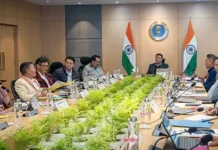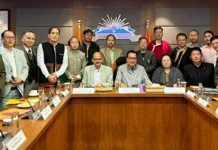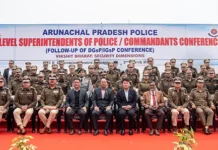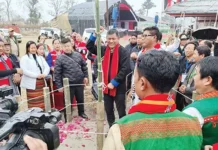NEW DELHI, 14 Mar: A high-level committee on simultaneous elections has proposed that 18 distinct amendments to the Constitution and other statutes would be required for the implementation of the proposal.
The panel, led by former president Ram Nath Kovind, recommended simultaneous elections to the Lok Sabha and the state assemblies as the first step, followed by synchronised local body polls within 100 days in its report on ‘One nation, one election’, submitted to President Droupadi Murmu on Thursday.
The changes suggested include amendment to the provisions of the Constitution relating to preparation of the electoral roll by the Election Commission of India in consultation with the State Election Commission(s) for the elections to the local bodies (in Article 325).
It would also require an amendment to a constitutional provision in order to have simultaneous elections for municipalities, panchayat along with general elections of the Lok Sabha and the state legislatures (Article 324A).
On the second constitutional amendment bill proposed by it, the panel said, “Under Article 368 (2) of the Constitution of India, ratification by not less than half of the states will be required to carry out amendments to the Second constitutional amendment bill to the Constitution of India as these matters are related to state affairs.”
Addressing the issue of a hung Parliament or assembly, the proposals suggested a mechanism for resolving situations where no single political party or alliance secures a majority.
“A situation that may arise and is required to be dealt with is that of the hung Parliament/assembly. It is a situation wherein a single political party or a pre-poll alliance does not have enough elected members to secure an overall majority in the House/assembly,” it said.
“The convention over the decades requires the president or the governor to explore the formation of a government by inviting the different political parties to form a government, if necessary, by collaborating under a common minimum programme.
“Constitutional values assume that those in public life would rise to the occasion when the need arises in order to ensure that the country or the state, as the case may be, have an elected government in place,” the report stated. (PTI)





